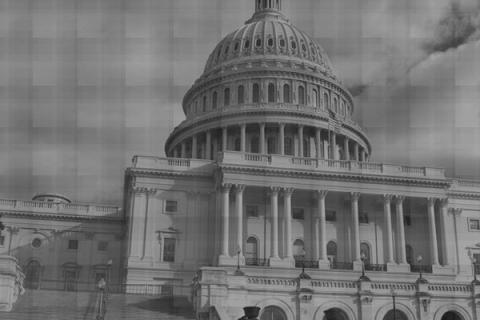Against the backdrop of President Obama's State of the Union speech during harsh economic times for many, the communications director for a California immigrant rights group believes that the President is obligated to readdress the importance of immigration reform tonight.
"I believe the President has an opportunity, make that a responsibility, to tell the American people that reforming our nation's broken immigration system is not an issue that concerns only those on the right or the left but one that concerns us all as we strive to emerge from the depths of one of the worst economic crisis since the Great Depression," said Jorge-Mario Cabrera, of the Coalition for Humane Immigrant Rights of Los Angeles (CHIRLA), in an op-ed for the Huffington Post.
Mr. Cabrera assessed that while President Obama looks forward to the nation's future, the president must also evaluate the "hits and misses" of the administration's first two years if he wants to retain the trust of the Latino electorate. Cabrera, of course, was referring to the Dream Act's failed vote in Congress. The legislation successfully passed the House, but failed to get past the Senate with six Democrats voting with Republicans against the legislation.
"The President should not ignore his party's colossal failure to make immigration reform a real priority, except during a last-minute attempt during the waning days of the lame duck session. The President should not pass the opportunity to remind Republicans that they played a key role stymieing progress towards fixing an immigration system that is both dehumanizing as it is costly and ineffective," he said.
While Cabrera expresses interest in making improvements in immigration policy, it would appear that his characterization of Republicans is an inaccurate one. Republicans refusing to go along with the Dream Act doesn't imply that they're anti-immigrant, that they don't desire to improve the "broken" system, or that they don't have an alternative immigration reform plan. These charges from the left are becoming more and more obsolete as members of the Republican party are seeking to court (and not demonize) the legal Hispanic vote.
Also, the Hispanic vote is by no means monolithic when it comes to immigration. Not all legal Hispanics support the Democratic immigration agenda. A survey from the Pew Hispanic Center of the U.S. Hispanic demographic last year actually revealed that immigration wasn't even a number one priority for many of them. Like most other legal Americans, among the top concerns was that education and the struggling economy are at the core of their concerns.
Building a connection with legal and potential Hispanic voters isn't missing from the Republican Party's conversation. As a matter of fact, it's a subject that's becoming more relevant as the 2012 election approaches. If there's any indication of how the Republican Party is making inroads with Hispanics, look no further than this past election, which saw a wave of Republican Hispanics get elected to office in states such as New Mexico, Nevada, and Florida among other states. Such results seem to dispel the notion that Republican Party-aligned voters aren't willing to embrace Hispanics and minorities as part of their movement.
It won't be surprising to see President Obama give a small nod to needed improvements in immigration reform tonight after being defeated on the issue last year, but I believe he will make a wise political choice if he sticks with discussing how to rebuild the economy, a primary concern of all Americans. The time to debate immigration reform will come soon enough.

